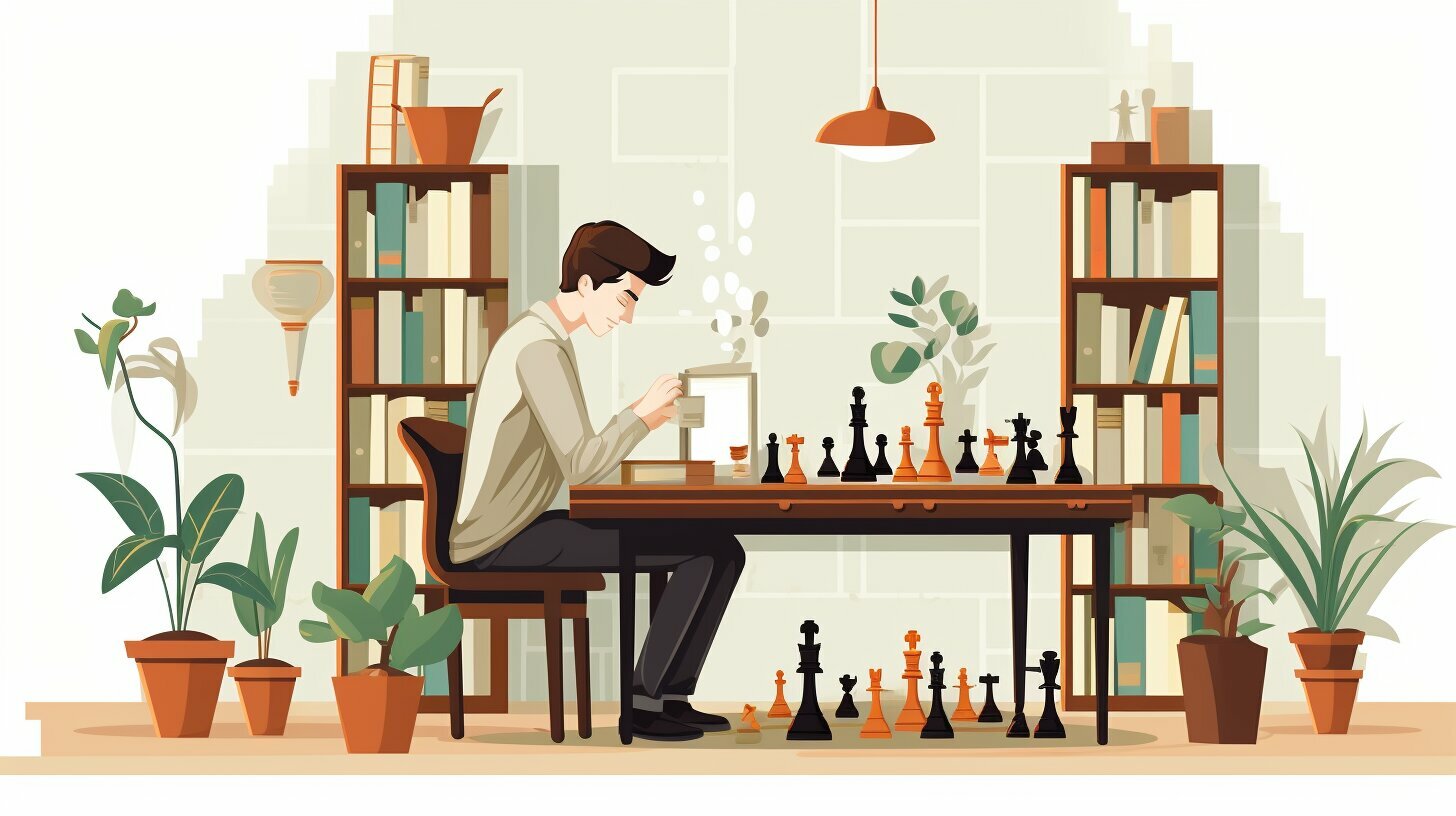hobbies that challenge your brain after 50. As we age, it’s important to keep our minds active and engaged in order to maintain cognitive function and overall well-being. Engaging in brain-challenging hobbies can be a great way to achieve this goal. In this section, we’ll explore a variety of hobbies that can stimulate and challenge your brain after the age of 50.
Key Takeaways:
- Brain-boosting hobbies for seniors can help improve cognitive function
- Stimulating hobbies for older adults can enhance overall well-being
- Cognitive activities for people over 50 can help reduce the risk of cognitive decline
- Mentally engaging hobbies for the elderly can provide entertainment and joy
- Hobbies for older adults to keep the brain sharp can contribute to cognitive growth
Sure, here’s your HTML text for Section 2:
Why Engage in Brain-Challenging Hobbies After 50?
As we get older, it’s important to keep our minds active and engaged. Engaging in brain-challenging hobbies can help improve memory, problem-solving skills, creativity, and reduce the risk of cognitive decline.
There are many ways to challenge your brain, from solving puzzles and brain teasers to learning a new language or playing a musical instrument. By incorporating intellectually stimulating hobbies into your routine, you can continue to enjoy a rich and fulfilling life well into your golden years.
Sure, here’s the HTML text for Section 3 of the article:
Puzzles and Brain Teasers
If you’re looking for mentally engaging hobbies for the elderly, puzzles and brain teasers are perfect options. These brain-challenging activities are not only fun and entertaining but also help to keep the mind sharp. Crosswords, Sudoku, jigsaw puzzles, and riddles are just a few examples of brain teasers for seniors that can test your logical thinking, memory recall, and attention to detail.
Tip: Try to start with puzzles that are not too difficult and progress to more challenging ones as you get better at them. This way, you can gradually improve your cognitive abilities and enjoy the process without frustration.
In addition to providing an intellectual challenge, puzzles and brain teasers can also be a great way to spend time with loved ones or engage in a group activity, such as a puzzle night or brain game competition.
Here’s your HTML text for Section 4 of the article:
Learning a New Language
Learning a new language can be a cognitive activity, especially for people over 50, because it stimulates the brain’s language centers and enhances memory. It is also a stimulating hobby for older adults, as it expands horizons and opens up opportunities for travel and cultural exploration.
Whether it’s taking a language class, downloading language-learning apps, or practicing with a conversation partner, there are plenty of ways to engage in language learning.
Studies have shown that learning a new language can improve multitasking abilities as well as enhance cognitive function and problem-solving skills. Plus, it’s a fun way to challenge your brain and keep it sharp!
Sure, here’s your HTML text for section 5:
Playing Musical Instruments
Playing a musical instrument is one of the most stimulating hobbies for older adults. It engages multiple areas of the brain, including memory, coordination, and auditory processing. It can improve fine motor skills, enhance creativity, and provide a fulfilling artistic outlet. Research has even shown that playing music can help delay cognitive decline in older adults.
If you haven’t played an instrument before, now is an excellent time to start. You can learn at your own pace with online lessons or in-person courses. Choose an instrument that you enjoy the sound of and that resonates with you. Whether it’s the guitar, piano, or saxophone, the possibilities are endless.
Playing music can also be a social activity. You can join a local music group or ensemble and perform with others. This provides an opportunity to meet new people and collaborate creatively.
Overall, playing a musical instrument can be an intellectually engaging hobby that brings numerous benefits to your mind and well-being.
Here’s the HTML text for section 6:
Participating in Strategy Games
If you’re looking for challenging pastimes for the aging mind, strategy games like chess, bridge, and poker are great options. These brain games for seniors require analytical thinking, decision-making, and problem-solving. Engaging in these games can sharpen your strategic skills while providing social interaction and entertainment.
Playing strategy games can also have cognitive benefits. These mentally stimulating games can improve memory, enhance attention to detail, and increase mental agility.
Benefits of Strategy Games
Sharpen Strategic Thinking: Strategy games challenge your analytical thinking and problem-solving skills, helping you develop a strategic mindset.
Improve Memory: By requiring you to remember rules, moves, and strategies, strategy games can improve your memory and recall abilities.
Boost Attention to Detail: Strategy games require you to pay close attention to details, which can improve your attention to detail in other areas of your life.
Enhance Mental Agility: By providing a challenging mental workout, strategy games can help keep your mind sharp and active as you age.
Overall, participating in strategy games can be a fun and intellectually stimulating hobby for those over 50. Whether you prefer playing with friends, family, or online opponents, there are many opportunities to enjoy these challenging pastimes.
Sure, here’s the HTML text for section 7:
Writing and Journaling
Writing and journaling exercises your brain’s language and creativity centers. It enhances self-expression, improves memory, and encourages reflection. Whether it’s fiction, poetry, or personal reflection, writing can be a fulfilling and intellectually stimulating hobby.
Sure, here’s an example HTML text for section 8:
Engaging in Artistic Pursuits
Exploring your artistic side can be a fulfilling and mentally stimulating hobby for those over 50. Painting, drawing, and other creative pursuits challenge the brain by requiring visual-spatial skills, hand-eye coordination, and creative thinking. Engaging in artistic activities can also help relieve stress and improve overall well-being.
Whether you’re a beginner or a seasoned artist, there are plenty of intellectually engaging hobbies to explore. Consider taking a painting class, learning a new art form like pottery or sculpting, or simply setting aside time each week to work on a creative project of your own.
Sure, here’s the HTML text for section 9 of the article:
Participating in Book Clubs or Discussion Groups
Joining a book club or discussion group is a stimulating pastime for those over 50. Not only does it provide an opportunity to socialize with like-minded individuals, but it also encourages intellectual conversation and the exchange of ideas. By participating in book clubs or discussion groups, you can broaden your knowledge, enhance your verbal communication skills, and nurture social connections.
Pro Tip: Look for book clubs or discussion groups that focus on a specific genre, author, or time period that you are interested in. This can help you dive deeper into a particular topic or genre while making new friends.
Participating in a book club or discussion group is an intellectually engaging hobby that can provide a fulfilling and enriching experience. Not only does it help keep your brain sharp, but it also allows you to connect with others in a meaningful way.
Here’s the HTML text for Section 10:
Conclusion
By incorporating brain-challenging hobbies into your routine after 50, you can achieve many benefits. Not only can you improve cognitive function, but you can also increase mental agility and enhance overall well-being. From puzzles and language learning, to music and artistic pursuits, there are many rewarding and stimulating activities to explore. Joining a book club or discussion group can also nurture social connections while expanding your knowledge and critical thinking skills.
Don’t be afraid to try something new and push your brain to the limit. By keeping your mind active and engaged, you can continue to lead a vibrant and intellectually fulfilling life well into your golden years.
FAQ
Why should I engage in brain-challenging hobbies after 50?
Engaging in brain-challenging activities can improve memory, enhance problem-solving skills, boost creativity, and reduce the risk of cognitive decline as you age.
What are some brain-teasing hobbies for seniors?
Solving puzzles and brain teasers such as crosswords, Sudoku, jigsaw puzzles, and riddles can stimulate logical thinking, memory recall, and attention to detail.
How does learning a new language benefit the brain?
Learning a new language stimulates the brain’s language centers, enhances memory, and improves multitasking abilities. It also opens up opportunities for travel and cultural exploration.
How does playing a musical instrument challenge the brain?
Playing a musical instrument engages multiple areas of the brain, including memory, coordination, and auditory processing. It can improve fine motor skills, enhance creativity, and provide a fulfilling artistic outlet.
What skills can strategy games improve?
Strategy games like chess, bridge, and poker require analytical thinking, decision-making, and problem-solving. Engaging in these games can sharpen your strategic skills while providing social interaction and entertainment.
How does writing and journaling challenge the mind?
Writing and journaling exercises the brain’s language and creativity centers. It enhances self-expression, improves memory, and encourages reflection. Whether it’s fiction, poetry, or personal reflection, writing can be a fulfilling and intellectually stimulating hobby.
How do artistic pursuits challenge the brain?
Painting, drawing, and other artistic pursuits challenge the brain by requiring visual-spatial skills, hand-eye coordination, and creative thinking. Exploring your artistic side can be a rewarding and mentally stimulating hobby.
What benefits can participating in book clubs or discussion groups bring?
Joining a book club or discussion group allows you to engage in intellectual conversations, exchange ideas, and broaden your knowledge. It encourages critical thinking, enhances verbal communication skills, and nurtures social connections.
What are the benefits of engaging in brain-challenging hobbies after 50?
Engaging in brain-challenging hobbies after 50 can bring numerous benefits, including improved cognitive function, increased mental agility, and enhanced overall well-being. By incorporating these activities into your routine, you can continue to enjoy an intellectually fulfilling and vibrant life.






Pingback: Discover Hobbies That Make You Happy After 50 & Unlock Joy!
Pingback: Intellectual Hobbies for 50s: The Ultimate Guide to Elevate Your Lifestyle - Life Beyond Fiftys